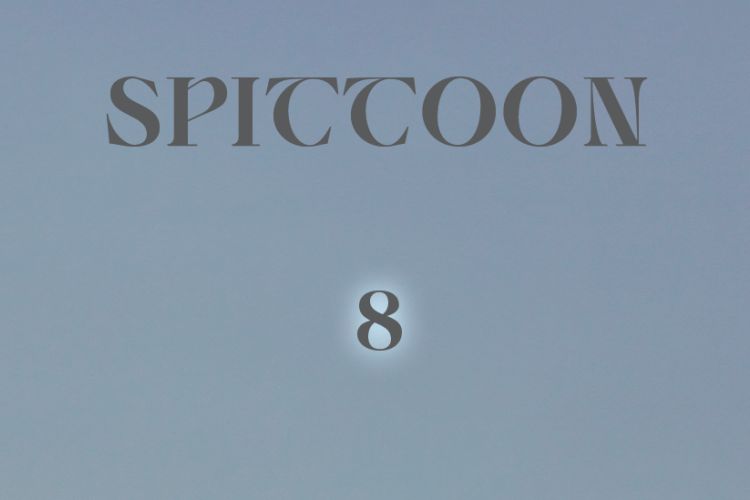The Juan to Watch: Techno's Founding Father at Block 8 this Friday
Juan Atkins pretty much invented techno music. He's been responsible for much more than that during his 30-year career in electronic music. We caught up with him before his Friday (Mar 6) show at Block 8 (RMB 60, includes a standard drink). Read the interview below then go to his show to see a pioneer in session.
the Beijinger: When you started making music did you at any point think “I might be making some kind of history here”?
Juan Atkins: At the time man, we were just trying to do what any other band or group of whatever was doing: original stuff plain and simple, making what you thought was good and that was it. It was never a thought of, 'oh, we could make a hit record.' We were never entrenched in the music industry to know that we even had an opportunity to make a record deal, you know? You had these big record groups like Earth Wind & Fire, Cameo and people like that - the big funk bands - who had these deals and they knew that for their next record they're going to get radio play, they're going to get promotion, they're going to have their product covered at every radio outlet in the country at the same time. We didn't have none of that, so there was no way of knowing what was going to happen with the music. I mean we were hoping, but it was never fame and fortune, it was just about making what we considered good dance music.
tbj: Your music must have sounded so different at the time… How could people listen to your music then?
JA: If you ask me, really good stuff is not the popular stuff. And at that time (early 80s) we were making records that radio stations didn’t want to play. Before most radio stations in North America were getting money from major record companies to play certain records, and we were completely out of that. They did that with local record stores too, putting their records on charts and everything. Even with Cybotron we never got the amount of airplay that we deserved, even with the popularity of the record (it was huge!). We never got heavy rotation – when you are getting heavy rotation the record is being played every half hour - and we never got more than three spins a day. We did a lot of work on our own, pressing, distributing, playing at different parties and getting our music out there to as many people as possible. After a while the record company guys would go to the store and say “we are paying you guys to get our stuff on the charts and you have these kids on there? Hell… who are they?”. Now it’s much easier in the sense that if you don’t have a formulaic commercial record and you want people out there to hear it, you can go directly to your public. There is more plurality everywhere with the radio now and the internet…
tbj: Promoting can be quite hard, did it come naturally to you?
JA: You know I read a lot, I read different things, I'm one of those people that have the patience to read so there's one book that was real instrumental in helping me start - and the book that Rick read - it was a book called How To Make And Sell Your Own Record. And it gave you step by step instructions on what you should do. I mean, it was the text book for anybody that had an independent label! That was what we used as our reference to do independent labels. It had charts and stuff in there that showed you how to do your spreadsheets and do your priority mailing list and your promotional list and if you don't know what a programme director’s job is, it tells you. You could read this book and have no clue or nothing about the music and run a successful… well I guess it depends on the record, but at least the information that they give you is correct and getting it to the right place and how to actually market your record and how to manufacture it, press it. I had no idea that you could make... you’d see a record at that time, you’re thinking you've got to have a record deal, have a contract, I had no idea that you could actually make your own record and sell it.
tbj: And your parties… did they have a “rave” feel to them then?
JA: We used to do what were basically high school parties, in student unions, clubs etc. That scene kind of faded away around 83/84. You see this was all high school stuff at the beginning, competing promoters, sound companies and stuff. By this time I'm like three years, four years out of high school, so I'm progressing on to some other stuff and then - around 86/87 - is when all of the international DJ stuff started.
tbj: You “made it big” in Europe before ever reaching a wider audience in the States. How did you feel about that?
JA: I had somewhat of a bitter taste, a bittersweet taste about this. I was like, 'hey man, what do you look like playing in a back yard in Southfield Michigan, when you could be in England, in London, playing for 5.000 people in raves?’. So eventually, Europe is where I started playing ‘raves’. Before, it was more of a localized but strong underground movement that was picking up in a few parts in America, but never really breaking into the mainstream completely. And then, at that time, that was the whole difference in the US, where I was in front of the curve. In the UK or Europe I was grabbing a hold and popularizing the music before the United States, mainly because they had pirate radio stations in Europe and that was a whole different animal. We didn't have pirate radio over here [in the States] so you still kind of stuck under the gun of the major radio market. The first time I heard them pirate radio stations in London man, I was floored! That was the thing! And the pirate stations were the ones breaking the music in the UK. It was really progressive and more open than any outlet in the USA. Only now kids – especially black kids – are getting a hold of electronic music in the US. Before it was perceived as a white guy’s thing. And that has been the view on electronic music for a long time in the US!
tbj: Almost 30 years is a long time making music as an electronic music artist. Do you see yourself as influential?
JA: I definitely see myself fitting in somewhere, I don't know exactly where. I would say, that in setting the course and the tone for electronic dance music, I am definitely influential. I think I played a major role in the direction and the course of electronic dance music. So when you look back on things, I think I would have to reference Sly And The Family Stone, as one of my all time favorites, that set the precursor to the whole funk kind of movement. I mean, if you look at George Clinton and P Funk, all of them took cues from Sly. Prince and, even James Brown, all of that was together. I think James Brown might have been a little bit ahead, but James was a solo artist, by himself. The Sly thing was the first time when you see the band, the whole band, with the vocalists and everything, that kind of set the tone, was the model for the funk bands. In that sense, I think I am influential to electronic artists today, you know, like being the one who took the first step in that direction.
tbj: Are there any contemporary electronic music artists that you like at the moment?
JA: Oh yeah, there’s a lot of stuff... You can’t get away from it now. You know it's a bittersweet pill kind of, so to speak. With the advent of more music being able to be made and released, you're going to get more choices and more innovations, but at the same token you're going to get a lot of bullshit too. It's a lot more... it's not like it used to be man. You can go into the record store and you know, 'OK, this is cool,' which is cool but then you know that ten other DJs are going to be playing the same shit. But it's a good thing to be able to have more choices to be able to express and expand yourself, have your own identity within this huge amount of choices today.
tbj: Is there anything else you would like to say to the people who are coming to your show?
JA: I just want to say that Juan Atkins did go through the storm, but I weathered the storm and I'm coming back with a vengeance! So just watch out!
Related stories :
Comments
New comments are displayed first.Comments
![]() steviesnowball
Submitted by Guest on Mon, 03/09/2009 - 10:23 Permalink
steviesnowball
Submitted by Guest on Mon, 03/09/2009 - 10:23 Permalink
Re: The Juan to Watch: Techno's Founding Father at Block 8 ...
Block8 wasted there money bringing this asshole to Beijing for a gig, he couldn't mix worth a f*ck on Friday night!
![]() Herbz
Submitted by Guest on Sat, 03/07/2009 - 18:58 Permalink
Herbz
Submitted by Guest on Sat, 03/07/2009 - 18:58 Permalink
Re: The Juan to Watch: Techno's Founding Father at Block 8 ...
An all time fave.... Juan as "Cybotron" in 83.
REAL ELECTRO
I've never been to Block 8, hence missed the gig, must've been great though!
![]() scottsykes
Submitted by Guest on Fri, 03/06/2009 - 16:14 Permalink
scottsykes
Submitted by Guest on Fri, 03/06/2009 - 16:14 Permalink
Re: The Juan to Watch: Techno's Founding Father at Block 8 ...
I saw Juan's show at Apple Store in SLT last night, he is amazing.
![]() admin
Submitted by Guest on Fri, 03/06/2009 - 14:05 Permalink
admin
Submitted by Guest on Fri, 03/06/2009 - 14:05 Permalink
Re: The Juan to Watch: Techno's Founding Father at Block 8 ...
http://www.thebeijinger.com/directory/Block-8
Validate your mobile phone number to post comments.






